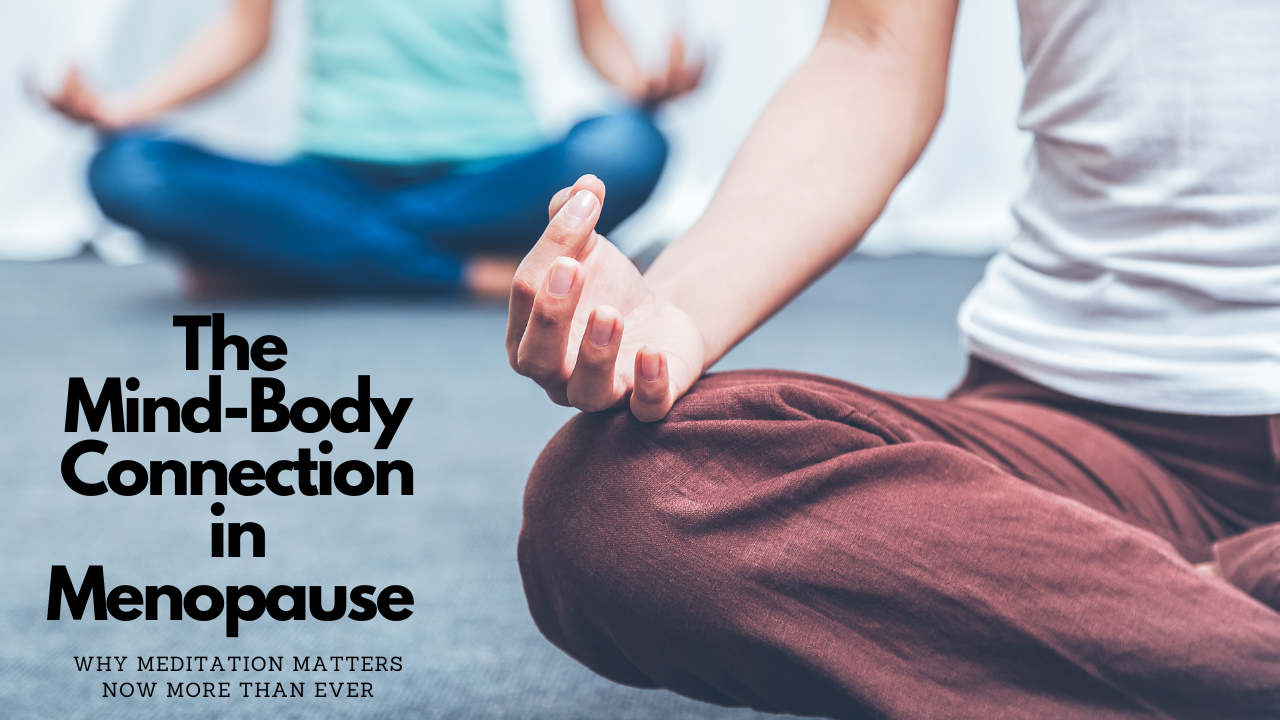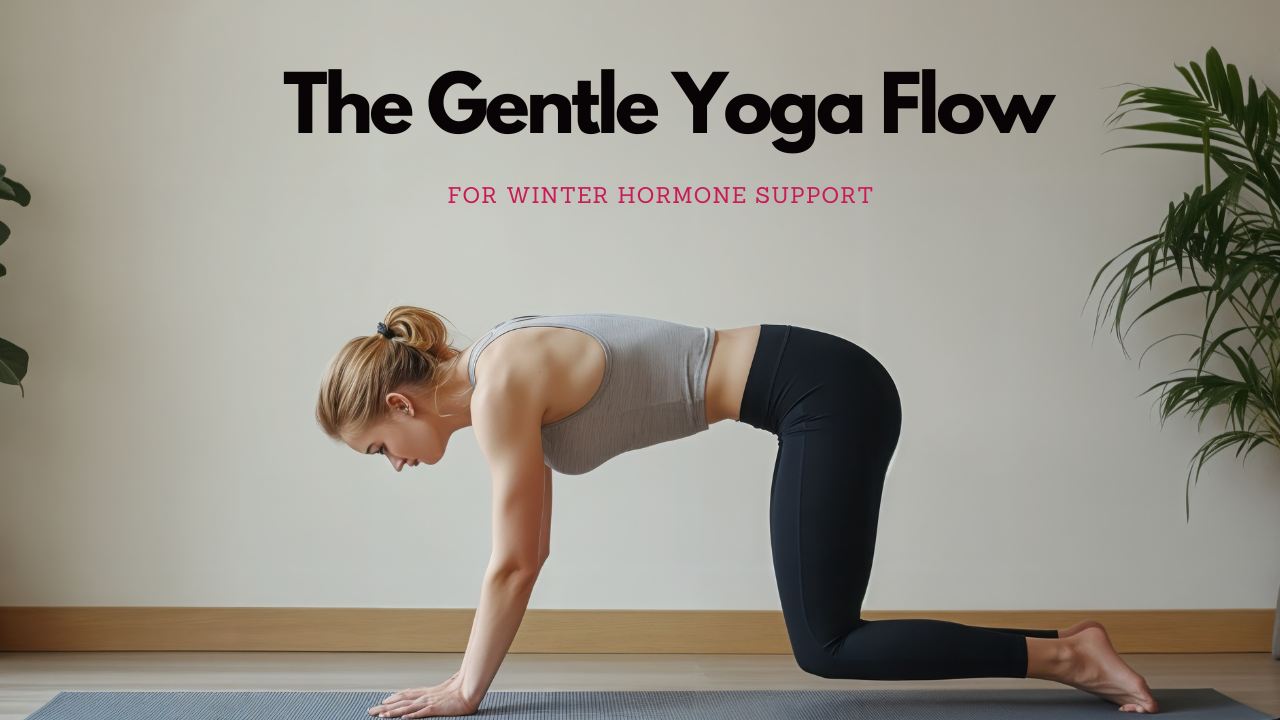The Mind-Body Connection in Menopause: Why Meditation Matters Now More Than Ever
Jun 11, 2025
Menopause isn't just a physical shift. It's a full-body transformation that affects everything from how you think and feel to how you sleep, react, and relate to the world around you.
If you've noticed that your mood is more sensitive, your patience shorter, or your brain fog thicker than ever, you're not alone. The hormonal fluctuations of perimenopause and menopause impact your nervous system and emotional regulation in powerful ways.
That’s where meditation comes in.
This simple but deeply effective practice is more than just sitting still. It’s a way to reconnect with your body, calm your mind, and ride the waves of midlife with more ease and strength.
What Is the Mind-Body Connection?
The mind-body connection is the idea that your thoughts, emotions, and beliefs can influence your physical health, and vice versa. When you're under stress, your body releases hormones like cortisol that impact your sleep, digestion, mood, and even weight.
During menopause, this connection becomes more noticeable. Hormonal changes can make your body more reactive to stress and more sensitive to emotional triggers. You may feel things more deeply, overthink more easily, or feel overwhelmed by things that never used to bother you.
This is not a flaw. It’s a sign that your nervous system is working overtime and could use some support.
How Meditation Supports You in Menopause
Meditation is one of the most effective ways to soothe your nervous system and bring balance back to your body and mind.
Here’s how it helps during menopause:
Reduces Stress Response
Meditation trains your body to move out of fight-or-flight mode. When practiced regularly, it lowers cortisol levels, reduces blood pressure, and promotes a sense of calm and control.
Improves Sleep Quality
Racing thoughts at bedtime are common in menopause. Meditation helps quiet the mind, preparing you for deeper, more restful sleep.
Supports Emotional Resilience
Mood swings, irritability, and anxiety are common midlife symptoms. Meditation helps you observe your emotions rather than get swept away by them. It creates space between reaction and response.
Enhances Mental Clarity
If brain fog has become your new normal, meditation can help. Just a few minutes of focused breathwork each day can improve focus, memory, and mental energy.
Deepens Body Awareness
Menopause often brings a disconnect from our bodies. Meditation brings you back into that awareness, helping you feel more grounded and in tune with what you need.
Getting Started with Meditation in Midlife
You don’t need to sit cross-legged on the floor or clear your mind completely to benefit. Meditation in menopause is about creating a small, doable habit that brings you back to yourself.
Try starting with this:
Find a quiet space. Sit or lie down comfortably.
Close your eyes and take five deep breaths. Inhale slowly. Exhale even slower.
Notice how your body feels. Scan from head to toe.
If your mind wanders, gently bring it back to your breath.
Start with just two to five minutes a day and build from there.
You can also try guided meditations, calming music, or even meditative walks in nature. The most important thing is to keep it simple and consistent.
This Season Calls for Slowness and Presence
Menopause is a powerful invitation to slow down and listen to your body in new ways. Meditation doesn’t fix everything, but it offers a space to pause, reflect, and recharge.
In a time when so much feels uncertain or out of your control, tuning inward might just be the most grounding and empowering step you can take.
You don’t need to be perfect at it. You just need to begin.
Stay connected with news and updates.
Join our mailing list to receive the latest news and updates from our team.
Don't worry, your information will not be shared.
We hate SPAM. We will never sell your information, for any reason.



